Trump Has a Soft Spot for American War Criminals
The president's desire to pardon U.S. soldiers and a military contractor accused of crimes in the never-ending war on terror is troubling, at best.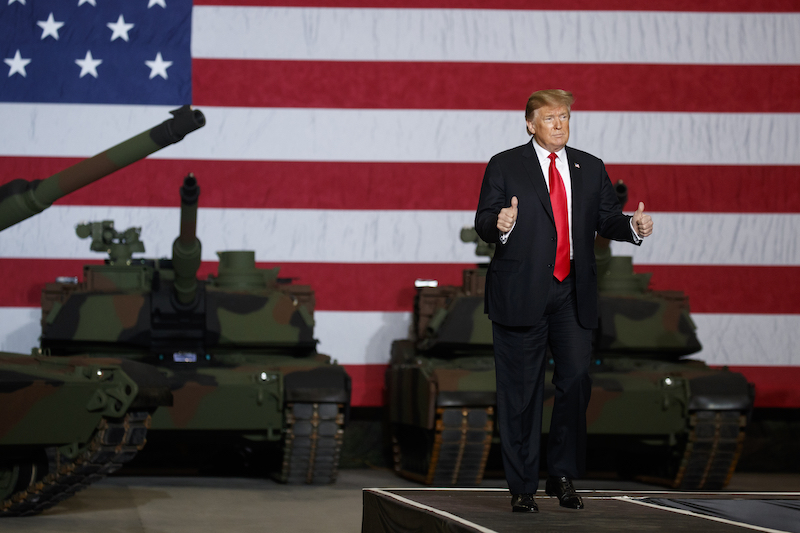 Evan Vucci / AP
Evan Vucci / AP
Memorial Day has come and gone and President Trump did not issue his pardons after all. There was substantial evidence that he was planning to use the yearly moment honoring the country’s war dead to grant executive clemency to several U.S. soldiers and at least one military contractor. All have been accused, and one already convicted, of crimes in the never-ending war on terror. But apparently Trump received enough resistance from serving and retired senior military officers and former soldiers, including presidential candidate Pete Buttigieg, to change his mind — for now.
The Friday before Memorial Day, the president was evidently still undecided but moved, so he told reporters, by his compassion for former fighters who are being “really treated very unfairly.” After all, he explained, “Some of these soldiers are people that have fought hard and long. You know, we teach them how to be great fighters, and then when they fight…” — well, we’re sometimes cruel enough to hold them to the standards set by U.S. and international law. Of course, there are those, including ethics students of mine in the Reserve Officer Training Corps, who might argue that part of the training to be a “great fighter” is learning to obey the laws of war, including, for example, the Geneva Conventions.
Trump has already pardoned one war criminal. On May 6th, he granted full executive clemency to Michael Behenna, convicted in 2009 of murdering an Iraqi prisoner named Ali Mansur Mohammed. Behenna served five years of a 25-year sentence and was paroled in 2014. What did Behenna do to Mansur? Guardian columnist Gary Younge offers some details: “On Mansur’s release Behenna was supposed to take him home, but instead took him to a secluded area, stripped him naked and shot him dead, later claiming Mansur had made a lunge for his gun.” Now, Behenna has a presidential pardon and Ali Mansur Mohammed is still dead.
Who else is in line for a possible pardon? The list includes Nicholas Slatten, a former contractor for Blackwater, twice convicted of murder in federal court for his part in the infamous Nisour Square massacre of 14 civilians in Baghdad in 2007. Blackwater, you may recall, was a mercenary outfit owned until 2010 by Erik Prince, a Trump confidant and the brother of Secretary of Education Betsy DeVos. Also under consideration for pardons:
- Army Major Matthew Golsteyn, a Green Beret accused of murdering an unarmed Afghan
- Navy Special Warfare Operator Chief Edward Gallagher, accused among other things of “stabbing a defenseless teenage captive to death, picking off a school-age girl and an old man from a sniper’s roost,” and “indiscriminately spraying neighborhoods [in Mosul, Iraq] with rockets and machine-gun fire,” according to the New York Times
- A “group of Marine Corps snipers charged,” as the Times also reported, “with urinating on the corpses of dead Taliban fighters”
Trump seems to have taken an interest in Gallagher’s case as early as this March, when he tweeted, “In honor of his past service to our Country, Navy Seal #EddieGallagher will soon be moved to less restrictive confinement while he awaits his day in court. Process should move quickly!” For once, Trump wasn’t lying and soon afterwards he ordered the Navy to release the prisoner from the brig while he awaits trial. Gallagher is now merely restricted to his base.
Small Fry Get Tried, Big Fish Walk
Both military figures and civilians have expressed disgust at Trump’s Memorial Day pardon talk. Some, like Buttigieg, argue that pardons for war crimes endanger those now serving in the military. “If the president blows a hole in” the military justice system, the Democratic candidate for president told the Washington Post, “he is blowing a hole in the military and he is putting troops’ lives at risk” by signaling to adversaries that the United States is not bound by the laws of war, so they needn’t be either.
Other critics point to potential harm to the integrity of the military justice system, which requires that military commanders refrain from seeking to influence ongoing judicial processes. Presumably the category of “military commanders” includes the commander-in-chief. Yet Trump has done just that, most recently by telling reporters he might wait until after the trials are over to consider issuing those pardons, a pretty strong signal to the courts of the outcomes he’d like to see.
 Outrageous as these potential and actual pardons may be, even the most outraged of observers continue to avoid a more significant issue: only relatively low-level soldiers and contractors have been held responsible for crimes committed in the war on terror. With all the recent discussion of pardons and war crimes, who’s talking about holding responsible the authors of the policies that put those soldiers in Afghanistan and Iraq in the first place? (Or, for that matter, in Syria, Yemen, Niger, or any of the other acknowledged and unacknowledged battlefields in our forever wars?) If the crime is big enough — like creating or countenancing a U.S. torture archipelago that stretched from Thailand to Poland to Guantánamo Bay, or lying to the world to justify launching an aggressive war on Iraq — the risk of trial is nonexistent. No pardons required.
Outrageous as these potential and actual pardons may be, even the most outraged of observers continue to avoid a more significant issue: only relatively low-level soldiers and contractors have been held responsible for crimes committed in the war on terror. With all the recent discussion of pardons and war crimes, who’s talking about holding responsible the authors of the policies that put those soldiers in Afghanistan and Iraq in the first place? (Or, for that matter, in Syria, Yemen, Niger, or any of the other acknowledged and unacknowledged battlefields in our forever wars?) If the crime is big enough — like creating or countenancing a U.S. torture archipelago that stretched from Thailand to Poland to Guantánamo Bay, or lying to the world to justify launching an aggressive war on Iraq — the risk of trial is nonexistent. No pardons required.
Should pictures surface of you tormenting Iraqis in some foreign prison like Iraq’s Abu Ghraib, as Army reservists Charles Graner and Lynndie England did, you might indeed end up in jail for a while and become the possible object of a presidential pardon. If, however, you’re Major General Geoffrey Miller, who ran the Guantánamo prison for then-Defense Secretary Donald Rumsfeld — well, you’re a hero. In 2003, Rumsfeld dispatched Miller from Cuba to take charge of U.S. military prisons in Iraq, especially Abu Ghraib, and to “Gitmo-ize them,” which he certainly did. And if you’re Donald Rumsfeld himself, who approved the use of torture at Guantánamo in an infamous December 2002 memo requested by Miller, you’re an elder statesman and honored philanthropist.
War Crimes and Cover-Ups
Of course, the war on terror isn’t the first American conflict in which higher-ups have escaped responsibility for war crimes. I was only 17 in November 1969, but I still remember when investigative reporter Seymour Hersh broke the story of the My Lai massacre in Vietnam. He recounted the events of a day of horror in March 1968 when a small band of U.S. soldiers, led by Lieutenant William Calley, systematically murdered somewhere between 350 and 570 Vietnamese civilians, all of them old men, women, or children. It would later emerge that, in addition to shoving Vietnamese peasants into ditches and machine gunning them, executing people kneeling outside a temple, setting fire to homes, and shooting people as they ran out to escape the flames, soldiers raped many women and girls.
A witness told Hersh, “They didn’t put up a fight or anything. The women huddled against their children and took it. They brought their kids real close to their stomachs and hugged them, and put their bodies over them trying to save them. It didn’t do much good.”
Alone among the 26 servicemen tried for My Lai, Lieutenant Calley was convicted in 1971 of murder. All the rest were acquitted. Calley was sentenced to life in the military prison at Fort Leavenworth, later reduced to 20 years. However, in a move that would presage Donald Trump’s order to release Eddie Gallagher, the day after Calley’s conviction, President Richard Nixon arranged for him to be moved to Fort Benning, Georgia, where he lived under house arrest until his parole a mere three-and-a-half years later.
As Nick Turse revealed in the Nation 40 years later, My Lai was no aberration. It was part of a larger operation calledSpeedy Express, conceived at the highest military levels, involving civilian murders committed across a wide swath of South Vietnam’s Mekong Delta. As Turse wrote in 2008:
“From December 1968 through May 1969, a large-scale operation was carried out by the Ninth Infantry Division, with support from nondivision assets ranging from helicopter gunships to B-52 bombers. The offensive, known as Operation Speedy Express, claimed an enemy body count of 10,899 at a cost of only 267 American lives. Although guerrillas were known to be well armed, the division captured only 748 weapons.”
Quoting an anonymous sergeant who in 1970 wrote a 10-page letter to Army Chief of Staff General William Westmoreland, Turse added that
“these killings all took place for one reason: ‘the General in charge and all the commanders, riding us all the time to get a big body count. Nobody ever gave direct orders to “shoot civilians” that I know of, but the results didn’t show any different than if… they had ordered it. The Vietnamese were dead, victims of the body count pressure and nobody cared enough to try to stop it.'”
No one was ever prosecuted for the crimes of Operation Speedy Express and only William Calley was ever convicted for the horrors of My Lai, themselves but one example of what Westmoreland’s anonymous correspondent called, “a My Lay [sic] each month for over a year.” Indeed, the expression “a Lieutenant Calley” came to signify a low-level scapegoat for war crimes ordered (however implicitly) by higher ups who managed to keep their hands — and their legacies — clean of the taint of atrocity.
Of course, no high-ranking officer, cabinet-level official, or U.S. president would ever stand trial for the crimes of the Vietnam War. Not for the extensive use of the incendiary napalm against defenseless civilians; not for the CIA’s infamous Phoenix Program in which between 20,000 and 40,000 Vietnamese were murdered (often after being tortured); not for the carpet bombing of parts of North Vietnam and significant parts of South Vietnam; not for the deaths of as many as two million civilians in North and South Vietnam.
Remember Nuremberg?
The United States was not always so reluctant to put national leaders on trial for their war crimes. That’s exactly what this country, along with the other three “Great Powers” of World War II — France, Great Britain, and the Soviet Union — did when they tried high-ranking Nazis and their enablers at Nuremberg.
In his opening remarks at the first Nuremberg trials in 1945, Robert Jackson, the chief prosecutor for the United States (and an associate justice of the Supreme Court), issued a warning: “We must not forget that the record on which we judge the defendants today is the record on which we will be judged tomorrow.”
As it turned out, he was wrong. The practices established at Nuremberg, and the understandings behind them, later codified in the 1950 Nuremberg Principles, have not proved to be the record by which U.S. actions in war, whether in Vietnam or in today’s never-ending war on terror, have been judged. Nonetheless, it’s worth taking a look at those ideas, because they provide an excellent basis for assessing just who are the real war criminals still walking among us.
Nuremberg established the principle that the international laws of war are real laws and that breaking them is a real crime. That’s what the International Criminal Court in The Hague, Netherlands, was created to adjudicate — even though the United States quickly removed itself from the ICC in 2002, the year it began functioning. It was then that President George W. Bush’s top officials started getting nervous about their new CIA torture program. And lest we think of that as ancient history, remember that it was John Bolton, President Trump’s current national security advisor, who delivered the news to the United Nations that the U.S. was leaving the court.
Under the Nuremberg Principles, even heads of state or other high government officials are not immune from prosecution for war crimes or crimes against humanity, nor can anyone be exonerated for them on the sole grounds of a superior’s orders. (That defense was nevertheless used by the My Lai killers and some of those President Trump is now thinking about pardoning.)
Before the Nuremberg tribunals could begin, the organizers had to decide what the charges would be. They settled on three major kinds of offense, which still frame the way we think about war crimes today. The first (which generated the most disagreement among the four Great Powers) was “crimes against peace” — in other words, involvement in launching a war of aggression. The French and the Soviets were dubious about trying Nazi officials for a crime that wasn’t explicitly identified in international law when the war started. Ironically, in view of this country’s twenty-first-century wars, it was Robert Jackson, backed by Secretary of War Henry Stimson, who in 1945 argued that all the rest of Germany’s war crimes sprang from this initial crime of waging an unprovoked war of aggression. In short (and logically enough), no war, no war crimes.
“War crimes” — violations of the laws of war such as mistreatment, torture, or execution of prisoners, or disproportionate harm to civilians — formed the second category. The third was, like the first, a new kind of crime made necessary by the unprecedented genocide of the Holocaust, and it was called “crimes against humanity.”
As I argued in my book American Nuremberg: The U.S. Officials Who Should Stand Trial for Post-9/11 War Crimes, there’s a sense in which most of the crimes of the U.S. war on terror — the tortures, the drone assassinations, the hundreds of thousands of pointless civilian deaths, the millions of people displaced and turned into refugees — sprang from the determination of then-Vice President Dick Cheney and his coterie of neocons to commit a crime against peace by invading Iraq. (Some of his acolytes like Elliott Abrams and John Bolton have ominously resurfaced in the Trump administration and have been doing their best lately to gin up new wars of aggression against Venezuela and Iran.)
Some (myself among them) have argued that the invasion of Afghanistan was also a crime against peace. Starting what has become the longest war in U.S. history was not the only option available to the Bush administration after the 9/11 attacks. It could have, for example, treated them as a horrendous crime, rather than an act of war, and used international channels like the International Criminal Court to prosecute those responsible. It could have continued its negotiations with the Taliban government for the extradition of Osama bin Laden and other al-Qaeda leaders. After all, the Trump administration is talking to the Taliban now. How many lives might have been saved with a little more patience in 2001?
In any case, U.S. war crimes, including torture, sprang from the desire to invade Iraq. Within a few days of the al-Qaeda attacks of 9/11, Donald Rumsfeld and his deputy Paul Wolfowitz were already pushing for a war against Iraq, according to George W. Bush’s autobiography. At a Camp David “war council” held four days later, Bush wrote, Rumsfeld told him that “dealing with Iraq would show a major commitment to antiterrorism.”
As many of its victims have reported, one of the original purposes of the CIA’s infamous torture program (and its archipelago of “black sites” around the planet) was not to prevent further attacks on the United States, but to get someone, anyone, to admit to a connection between Iraqi autocrat Saddam Hussein and al-Qaeda and the 9/11 attacks. (There was none, of course.)
One of those prisoners was a Libyan named Ibn al-Shaykh al-Libi who was shipped to Egypt and waterboarded until he agreed to the proposition that, as President George W. Bush put it in an October 2002 speech to the nation, “Iraq has trained al-Qaeda in bomb-making and poisons and deadly gases.” In the same speech, Bush even explained where he got this “information,” saying, “Evidence from intelligence sources, secret communications, and statements by people now in custody reveal that Saddam Hussein aids and protects terrorists, including members of al-Qaeda.” Secretary of State Colin Powell then repeated this claim in an infamous speech to the U.N. Security Council justifying the U.S. invasion of Iraq. Al-Libi later recanted, saying his statement implicating Iraq had been forced out of him under torture, but by then, of course, Washington’s war in Iraq was well underway.
The Other War Criminals
If the United States had been judged by the standard set at Nuremberg, people of much higher position than Eddie Gallagher would be lining up today for Trump pardons. The list would be long indeed, but would certainly include President George W. Bush, Vice President Dick Cheney, Secretary of Defense Donald Rumsfeld, CIA Director George Tenet, Attorneys General Alberto Gonzales and John Ashcroft, and Zalmay Khalilzad, who was Bush’s ambassador to both Afghanistan and Iraq and is presently serving as U.S. special representative for Afghanistan reconciliation.
Meanwhile, our current criminal president contemplates pardoning the small fry, even as he orders an investigation into the agencies that had the temerity to investigate the Russian hacking of the 2016 election. We can only hope that one day soon he also finds himself in need of a pardon — like the one President Gerald Ford gave Richard Nixon after he avoided impeachment by resigning from office.
Your support matters…Independent journalism is under threat and overshadowed by heavily funded mainstream media.
You can help level the playing field. Become a member.
Your tax-deductible contribution keeps us digging beneath the headlines to give you thought-provoking, investigative reporting and analysis that unearths what's really happening- without compromise.
Give today to support our courageous, independent journalists.
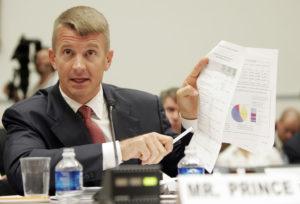
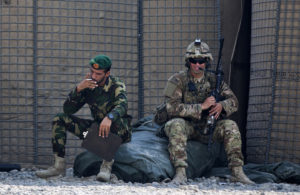

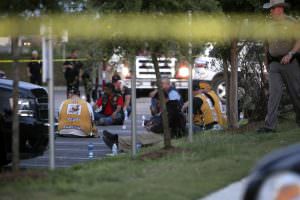
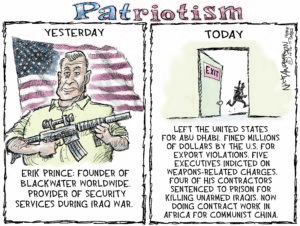
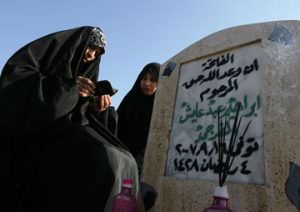


You need to be a supporter to comment.
There are currently no responses to this article.
Be the first to respond.